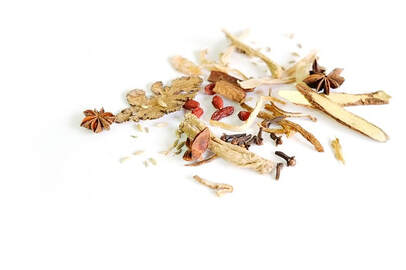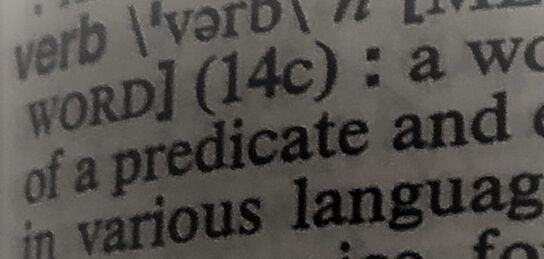What are the latest integrative medicine or integrative health approaches in the disciplines of cardiology? endocrinology? hepatology? dermatology? gastroenterology? neurology?WHAT IS INTEGRATIVE MEDICINE? The roles of integrative medicine and complementary medicine are increasing in mainstream medical clinics and health maintenance organizations. According to the National Center for Complementary and Integrative Health (NCCIH) at the National Institutes of Health, "Integrative healthcare often brings conventional and complementary approaches together in a coordinated way. It emphasizes a holistic, patient-focused approach to healthcare and wellness." The mission of the NCCIH is to define, through rigorous scientific investigation, the usefulness and safety of complementary and integrative health interventions and their roles in improving health and healthcare. RESOURCESMEMORIAL SLOAN KETTERING CANCER CENTER https://www.mskcc.org/cancer-care/diagnosis-treatment/symptom-management/integrative-medicine JOHNS HOPKINS MEDICINE https://www.hopkinsmedicine.org/health/wellness-and-prevention/integrative-medicine SCRIPPS CENTER FOR INTEGRATIVE MEDICINE https://www.scripps.org/services/integrative-medicine MD ANDERSON CANCER CENTER https://www.mdanderson.org/research/departments-labs-institutes/programs-centers/integrative-medicine-program.html MAYO CLINIC https://www.mayoclinic.org/tests-procedures/complementary-alternative-medicine/about/pac-20393581 DUKE INTEGRATIVE MEDICINE https://dukeintegrativemedicine.org/ NATIONAL CENTER FOR COMPLEMENTARY AND INTEGRATIVE HEALTH (NCCIH) NATIONAL INSTITUTES OF HEALTH (NIH) https://nccih.nih.gov/ Visit this site for a wealth of information, including All Health Topics from A-Z and Información de Salud en Español https://nccih.nih.gov/health/espanol?lang=es Subscribe to NCCIH emails for health and wellness information on the efficacy of herbs, dietary supplements, and other approaches in the treatment of specific medical conditions: https://public.govdelivery.com/accounts/USNIHNCCIH/subscriber/new A SAMPLING OF NCCIH TOPICS:
Information provided as a public service for those seeking to learn more about integrative medicine. The inclusion of a particular resource does not represent endorsement of said resource.
0 Comments
Chinese herbs in coronavirus treatmentTRADITIONAL CHINESE HERBAL REMEDIES As evidenced by a February 18th tweet from China Xinhua News, healthcare practitioners across China are relying on centuries-old remedies to treat the novel coronavirus. In the absence of targeted drugs and vaccines, with continual updates to the national diagnosis and treatment program for novel coronavirus, the role of traditional Chinese medicine (TCM) is on the rise. More COVID-19 patients are being treated with Chinese medicine or integrated Western-Chinese medicine, and the role of TCM herbal prescription formulas is expanding. What formulas are they using? What do the properties of these herbs tell us about TCM approaches to the virus? USE OF CHINESE HERBS TO TREAT THE CORONAVIRUS With an array of treatment methods and a wealth of experience in its arsenal, Chinese medicine has been used to fight plagues and epidemics for thousands of years. The focus of TCM is not just the virus itself but also symptoms and changes to the body caused by the invasion of the virus. Treatment starts with the patient as a whole, to identify patterns and then dispel sickness and support health. HERBAL FORMULA USAGE RATES 80% TO 95% Reports from throughout China indicate TCM formula usage rates of 80% to 95% in confirmed cases of novel coronavirus. One specialist described isolation wards containing a mix of mild, typical, and severe cases of novel coronavirus. Typical cases are characterized as imaging findings in the lungs but the absence of disease progression to respiratory failure. In hospitals, traditional Chinese medicine plays a significant role in regulating diarrhea, constipation, and other gastrointestinal symptoms; in addition, intervention with Chinese medicine may stop the condition from progressing to the severe and critical stages. WHAT FORMULAS ARE BEING USED? WHAT FORMULAS HAVE BEEN VALIDATED? 清肺排毒汤 The National Health Commission and the State Administration of Traditional Chinese Medicine recommend Qing Fei Pai Du decoction (清肺排毒汤); clinical observation and data analysis have been performed on the therapeutic efficacy of this classical TCM formula. One formula for Qing Fei Pai Du decoction appearing on multiple sites, including Baidu, listed 21 ingredients. The top ingredients in terms of quantity are calcium sulfate, Radix bupleuri (common name bupleurum, effective in the treatment of alternating chills and fever; may induce headache or nausea), Poria cocos (efficacy in draining dampness and transforming phlegm; concurrent administration of diuretics contraindicated), Radix dioscoreae (Chinese yam, known to tonify qi and yin of the lungs, spleen, and stomach; may have hypoglycemic effects, use with caution in comorbid hepatobiliary disease). 肺炎一号 Pneumonia Formula No. 1 (肺炎一号), developed by the Chinese Medicine Department at Guangzhou Eighth People's Hospital, and its variations Pneumonia Formula No. 2, Pneumonia Formula No. 3, Pneumonia Formula No. 4, and Pneumonia Formula No. 5 are also in use. Formula No. 1 has achieved favorable clinical results in Guangzhou. Formula No. 1 includes two herbs that clear heat and relieve toxicity, Flos lonicerae (honeysuckle flower) and Fructus forsythiae (forsythia fruit), along with 16 other ingredients. VARIATIONS In Chinese medicine, the treatment regimen adopted varies by person. If a patient is in poor physical condition, dispelling disease is not enough, treatment must focus on supporting health. For example, in those with poor appetite it is necessary to focus on spleen health; in patients with damp-heavy qi and thick tongue coating it is necessary to improve the flow of urine. Ear needling (acupuncture) may be used to treat the patient’s psychological state and resolve issues of insomnia, in order to restore the patient’s biological clock. Just as treatment varies by individual patient, the virus varies by region. This too is a factor in treatment selection. It would not be appropriate to select one uniform formula for the entire nation. NOT ADVOCATED FOR THE HEALTHY NOT ADVOCATED FOR THE PREVENTION OF CORONAVIRUS According to the head of a university of traditional Chinese medicine, the entire populace does not need to take this medicine. Healthy people need to improve resistance in order to avoid getting sick. High-risk populations, including healthcare providers, may take herbal remedies as appropriate. Practitioners emphasized that these are treatment prescriptions and are not recommended as preventive prescriptions. The general public should not self-administer these prescriptions. This blog briefly examines TCM principles and herbal remedies in light of recent Chinese media reports on novel coronavirus treatment in China. This examination is not intended to replace medical advice from a trained and qualified professional, and the use of herbal preparations is not recommended without the advice of a healthcare provider. Substances in herbal preparations may interact with prescription drugs to eliminate therapeutic efficacy or induce toxicity.
COMMON MISTAKES IN CHINESE-TO-ENGLISH TRANSLATION AND HOW TO ENSURE TRANSLATION QUALITY
What's the solution? Hire an experienced translator to ensure accurate translations. The standard in the translation industry is to translate into one's native language, thus a native English speaker is the best choice for Chinese-to-English translations. Look for a language professional with relevant language training, professional experience, and excellent written English. Grammatical errors and typos are red flags!
More questions about translation? Contact Integrative Translations. |
�
AuthorKerilyn Sappington is the founder of Integrative Translations, which specializes in the Chinese to English translation of topics in conventional and complementary medicine. Archives
August 2022
Tags
All
|






